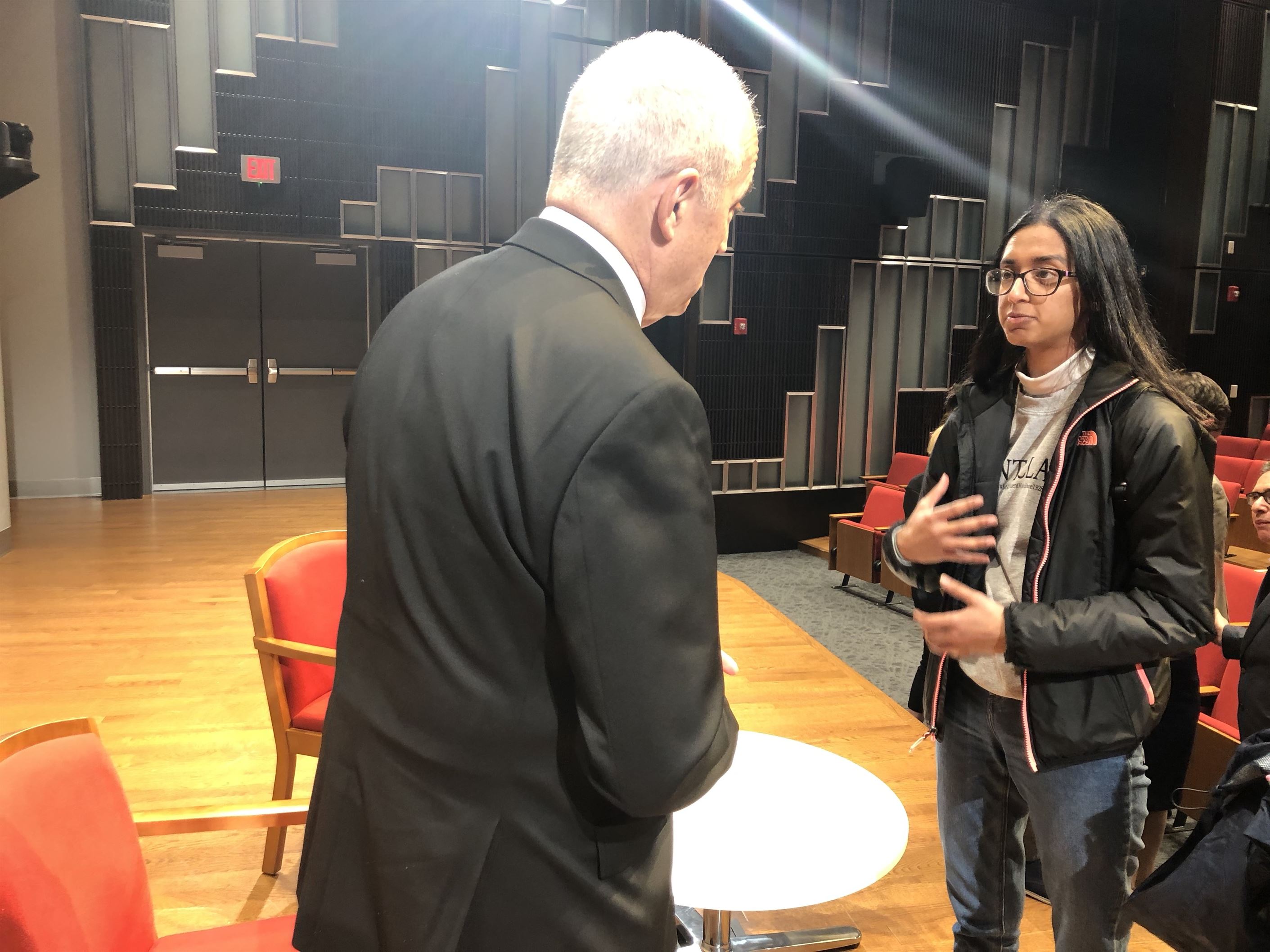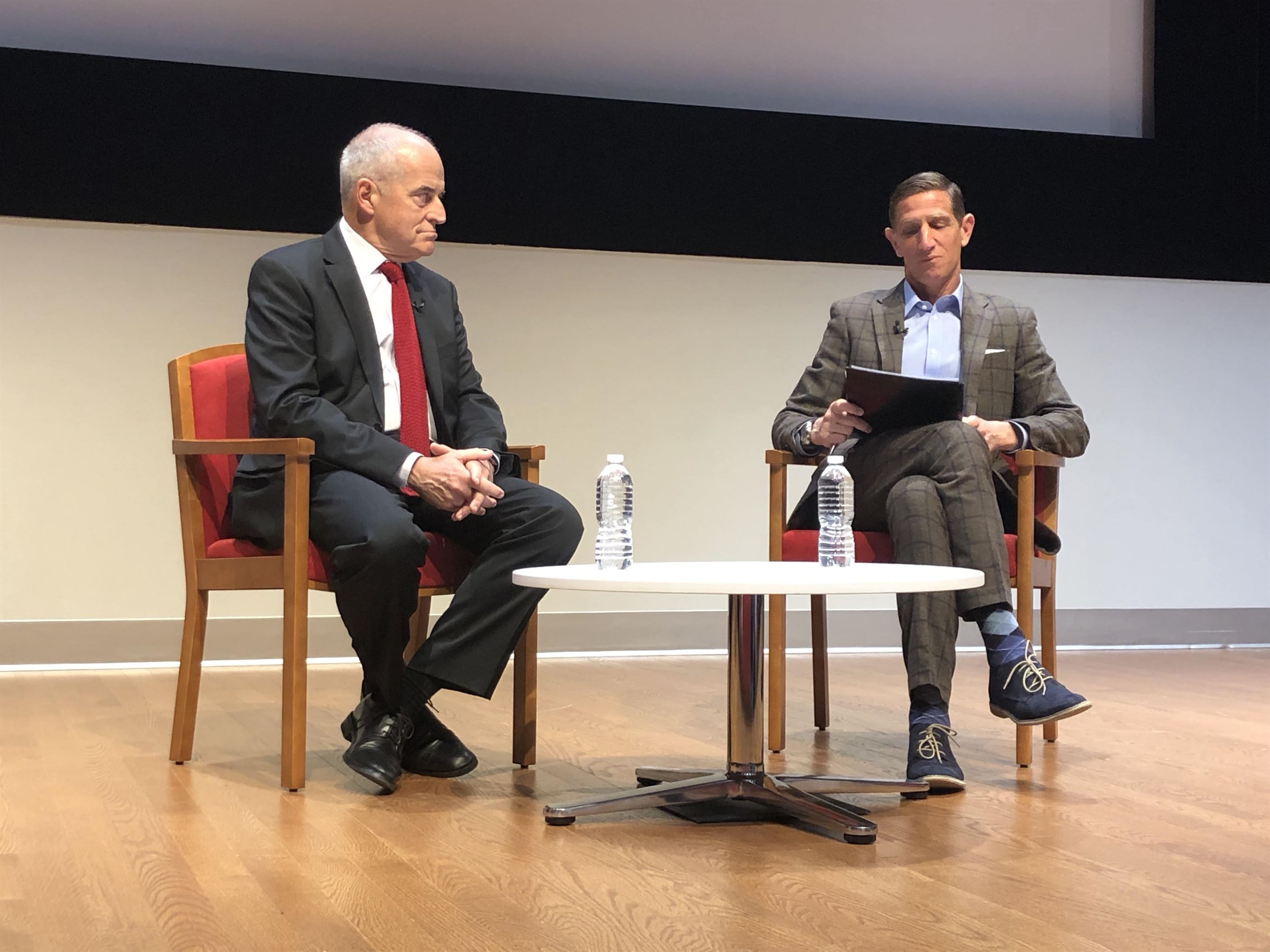From Columbine to the 9/11 attacks to Hurricane Katrina, Andrew Heyward ran CBS News during all of those events. Last week, the former president of the network’s news division stopped by Montclair State University to share his experiences as part of the Terhune Lecture.
Established in 1970, the Terhune Lecture began in New York. Each year, speakers come to Montclair State for an interview with the Director of the School of Communication and Media. In previous years, Montclair State has welcomed Washington Post Executive Editor Marty Baron, Fox News’ Mario Bartiromo and NBC News’ Willie Geist.
A research professor at the Walter Cronkite School of Journalism in Arizona, Heyward is also a scholar at Massachusetts Institute of Technology. Prior to working in higher education, he ran CBS News from 1996 to 2005.
When he was younger, Heyward thought he was going to law school but had an interest in communication of ideas.
“[I] never went to law school and just stopped,” Heyward told the room.
His career began at WNYW-TV in New York. After the retirement of Walter Cronkite, Heyward then joined CBS News.
During the lecture, he discussed what the ratings were like in the mid 90s.
“The combined share was in the 75 percent to 80 percent range,” Heyward said. “I think you will continue to see steadier erosion.”
In addition to viewership, he revealed one of the biggest changes was the universal trust of news anchors. The research professor and scholar admitted that those days are gone.
“No one will have that widespread truth,” Heyward said.

Heyward chats with former Montclarion Opinion Editor Sunah Choudhry and answers her questions. Jeremy Wall | The Montclarion
Despite times being different and the business being more competitive, students learned that there were times when the viewers would turn to the anchors for both information and comfort. One of those times was the 9/11 attacks.
Heyward recalled leading the news crew through that tragic time. He shared his memory of seeing tears rolling down the face of a member in the control room and Dan Rather being on-air for a long period of time.
Years later, despite the development of technology and the digitalization of news, he informed the presentation hall that traditional news is still what viewers see on television. Heyward even predicts that younger people will continue to care about traditional news.
“Communities will pay for journalism that is meaningful,” Heyward said.



